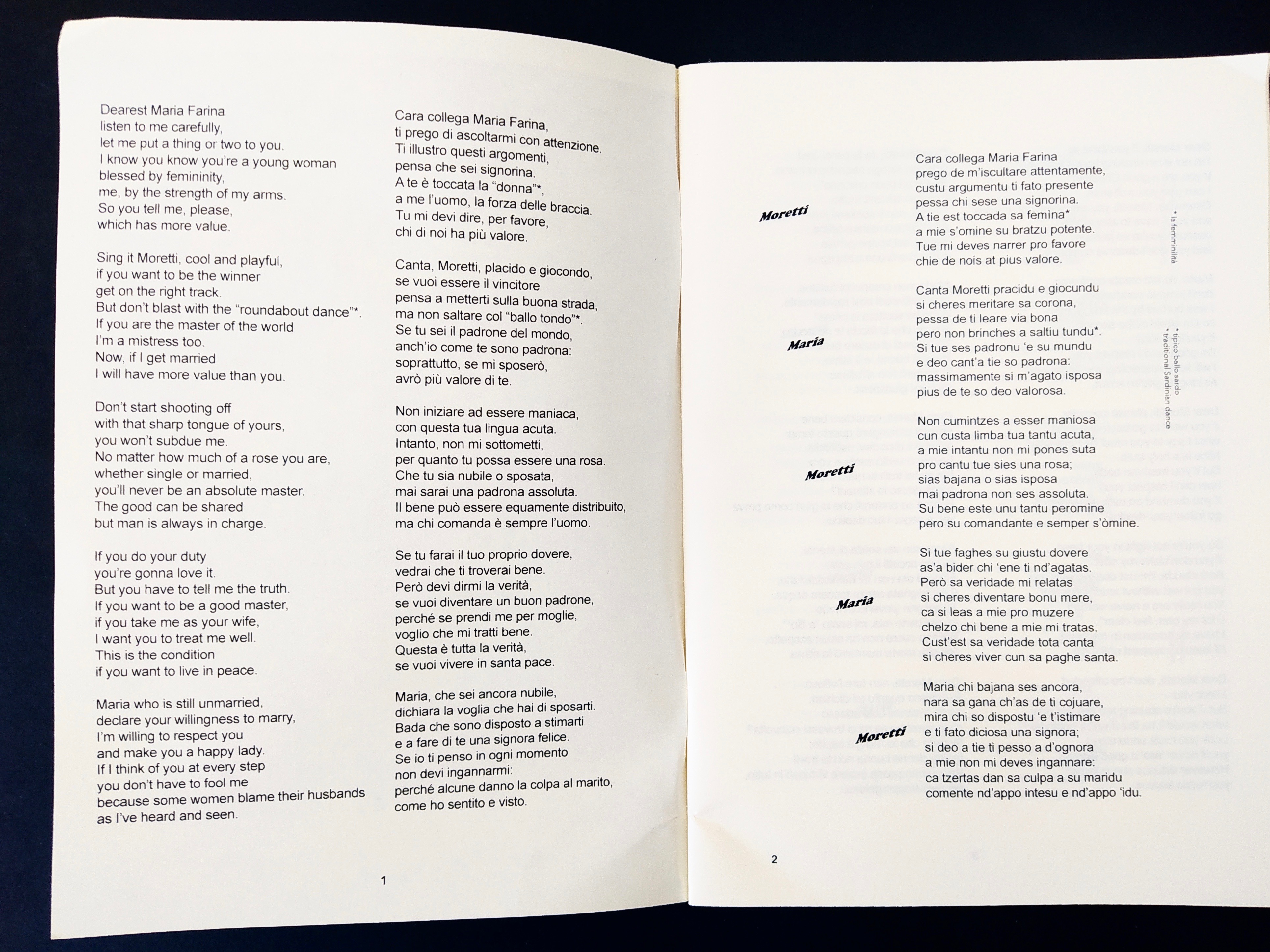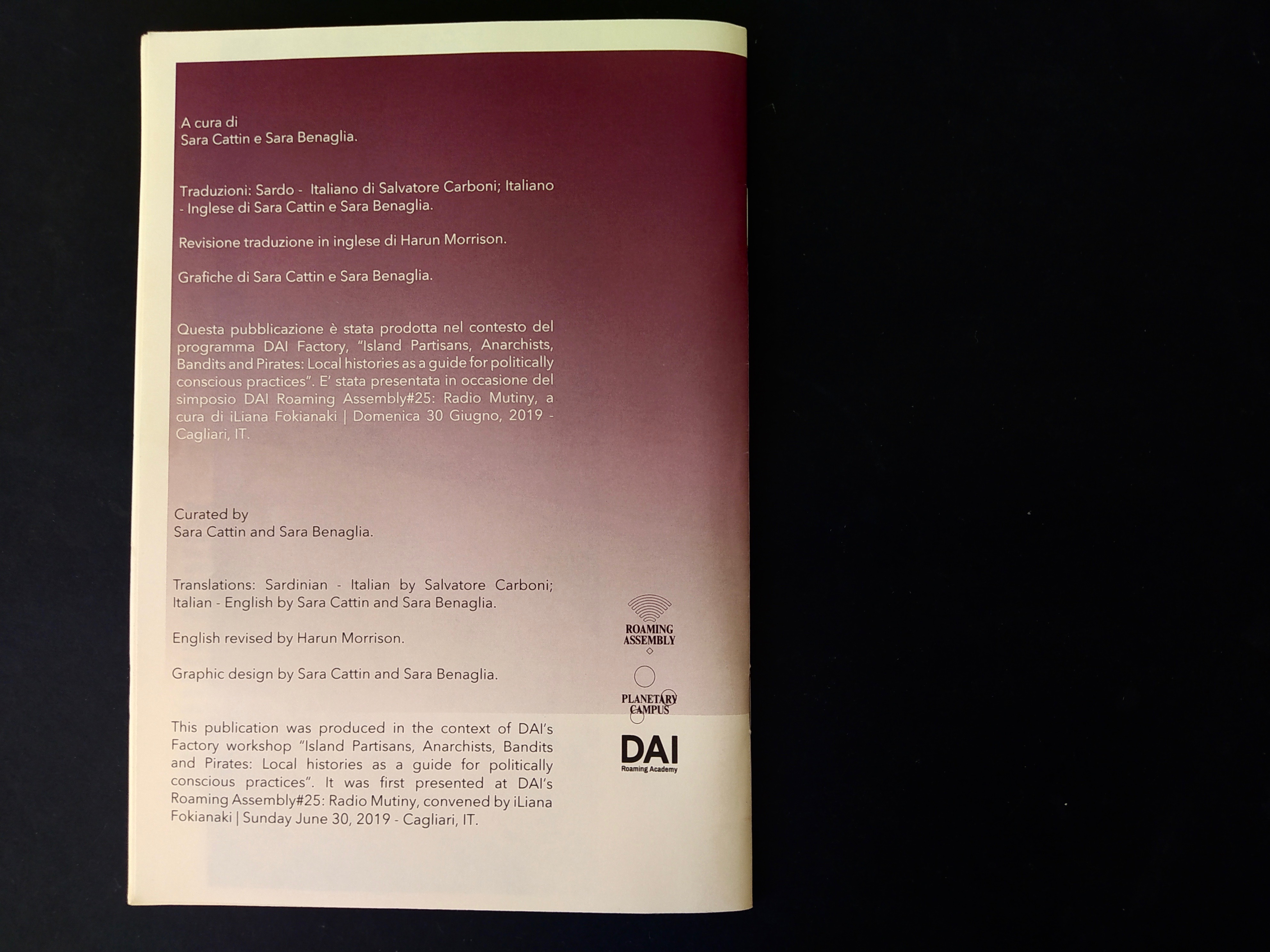Gara Poetica Sarda
Collaboration with Sara Benaglia.
Pumplet produced in the context of DAI’s factory workshop “Island Partisans, Anarchists, Bandits and Pirates: Local histories as a guide for politically conscious practices”.
2019, Cagliari (IT).
Translations: Sardinian - Italian by Salvatore Carboni;
Italian - English by Sara Cattin and Sara Benaglia.
English reviseted by Harun Morrison.
Graphic design by Sara Cattin and Sara Benaglia.

It was first presented at DAI‘s Roaming Assembly#25: Radio Mutiny, convened by iLiana Fokianaki. 2019, Cagliari.
https://dutchartinstitute.eu/page/13827/2019-~-sunday-june-30-roaming-assembly-25-~-radio-mutiny-~-convened

Poetry Battles are a Sardinian folk-tradition. They involve challenges between poets who improvise on a given theme in the Sardinian language, typically in public spaces. Touching on political, cultural and social life, poetry battles were banned by the Fascist state and the Clergy, until the liberation. Maria Farina, from Santa Vittoria di Osilo, and Chiarina Porcu, from Ossi, were two women that were distinguished in this typically male practice. Very little material has been archived about women who practiced impro-poetry, or their performances documented. Maria Farina improvised these verses in 1913.
The translations in this booklet do not follow the metrics of the original text, rather, they were devised - while reading or listening to the dialogue - to understand the meaning and context of the improvised verses. Furthermore, both translations use contemporary versions of the two languages. Thus, the translations’ specific content can ́t be considered an ’academic’ source of information.
Sardinian is a language - not a dialect - of the Romance group of Indo-European languages; it retains influences from the Paleo-Sardinian period and from other languages including Italian. The Sardinian language had been censored in different historical periods as a means of repression. Today, Sardinian is defended as an ethnolinguistic minority and, despite the fact it is not included within the national educative programmes, it is spoken across the entire island of Sardinia.



